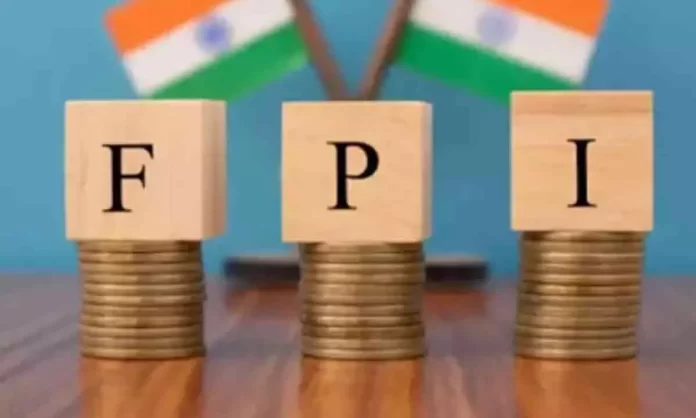Foreign portfolio investors stepped up selling: Stock exchange data shows that between March and May, FPIs sold stocks valued at Rs 75,000 crore, while DIIs supported the market by making investments of Rs 1,50,000 crore.
Foreign portfolio investors (FPIs) have been selling more stocks since January of this year, suggesting that they may have some idea about the Lok Sabha election results.
Since January of this year, foreign players have removed almost Rs 125,000 crore from the cash market (excluding IPO investments), as China has once again beckoned them as an alternative investment destination. Nonetheless, throughout the course of the five months, domestic institutional investors—led by mutual funds and insurance companies—purchased equities valued at Rs 300,000 crore, helping benchmark indices reach all-time highs.
Stock exchange data shows that between March and May, FPIs sold stocks valued at Rs 75,000 crore, while DIIs supported the market by making investments of Rs 150,000 crore. Contrary to common belief, the FPI action meant that the NDA would gain more than 350 seats in 2019, surpassing its previous record.
On a net basis, FPIs sold Indian shares for a record Rs 12,436.22 crore on Tuesday.
FPIs actually pulled out Rs 3.94 lakh crore from stocks during the course of the last five years, making them sellers in the stock market. But by investing Rs 7.83 lakh crore over the course of five years, domestic money saved the market and helped it reach new heights.
Market analysts noted that a number of investor types, including FPIs, had placed short positions in the market. Short covering of those positions by investors followed exit polls that indicated the ruling BJP would win, and on June 3, the Sensex increased by 3.39 percent.
Some investors took short positions because they expected the BJP might not form a government on its own and might need to form an alliance. While FPIs with long positions in the markets had taken some short positions to protect themselves in the event of an unfavourable poll result, they added.
Research Lead for IIFL Securities According to Jayesh Bhanushali, global portfolio managers have a bad opinion of India because of the growing allure of Chinese stocks and the potential unpredictability of the upcoming election. Nonetheless, the outcome of the weekend exit polls forced short sellers to cover their bets.
Since 2009, there has been a tendency in the five months leading up to election results when the FII was net positive in the cash category. Nevertheless, since January 2024, FIIs have sold equities in the cash market for about Rs 1.26 lakh crore. Due to consistent economic development, a stable administration, and a favourable macroeconomic climate with anticipated rate decreases by central banks, we think the FIIs are likely to make a comeback in India in the second half of 2024,” he stated.
The outperformance of Chinese stocks has been the primary cause of FPI sales. According to V. K. Vijayakumar, Chief Investment Strategist at Geojit Financial Services, the Hang Seng index surged 8% in the first half of May, which led to selling in Indian equities and buying in Chinese ones.
The increase in US bond yields was another factor. Investors in foreign exchange bought and sold bonds in emerging markets, such as India, whenever the yield on US 10-year bonds increased above 4.5%.
The sale of equity in India was also spurred by these two considerations. The election outcome will have a major impact on FPI activity in June. The market is probably going to react favourably if the election results guarantee political stability. But over time, US interest rates will have a greater impact on FPI flows.





























